Review: 'Quag Keep' by Andre Norton
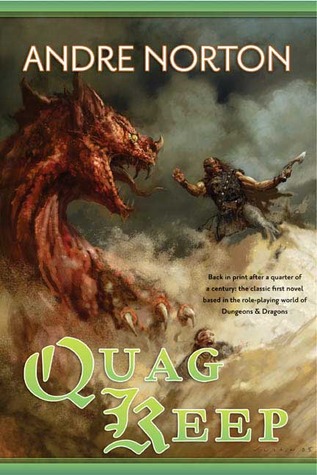 This 1978 novel, the first ever written for a role-playing game, may still be one of the worst four decades later. The esteemed SF/F author Andre Norton was introduced to the first edition of Dungeons & Dragons by co-creator Gary Gygax. After a play session, she wrote a novel from her limited understanding of the rules about characters who don't know their lives and world are a game. That sounds intriguing but the novel isn't. It devotes less than 20 pages at the beginning and end to exploring the premise.
This 1978 novel, the first ever written for a role-playing game, may still be one of the worst four decades later. The esteemed SF/F author Andre Norton was introduced to the first edition of Dungeons & Dragons by co-creator Gary Gygax. After a play session, she wrote a novel from her limited understanding of the rules about characters who don't know their lives and world are a game. That sounds intriguing but the novel isn't. It devotes less than 20 pages at the beginning and end to exploring the premise.
Instead, it's a plodding tale of an adventuring party dragged across the World of Greyhawk by a geas with bracelets holding RPG dice fixed to their wrists. The characters in the group were hard to tell apart, aside from a berserker were-boar and stoic lizard man named Gulth. The punishment he silently endured when forced to travel through a harsh, dry clime, far from swamps, was evocative and memorable. I read this in the '80s and didn't recall any of it. I'll likely forget it again.
I'm a ServiceNow Certified Application Developer
I passed the ServiceNow certified application developer test today at the University of Florida after taking the official training course for three days last week. It's a closed-book 90-minute, 60-question test that requires 70% to pass and doesn't reveal your score or the answers you missed.
 I've been writing custom applications and integrations using JavaScript in the ServiceNow cloud for three years, so I was ready to take the test. But even so, a few questions had me sweating like Albert Brooks in Broadcast News.
I've been writing custom applications and integrations using JavaScript in the ServiceNow cloud for three years, so I was ready to take the test. But even so, a few questions had me sweating like Albert Brooks in Broadcast News.
As you take the test, you can mark some answers for review before submission in case you're not entirely sure you got them right. I designated 27 of them for a second look. On around five of those, I kept talking myself into one answer before switching back to another.
In the last 12 days I've spent six days in training class and two more taking certification tests. My brain is full. If anybody tells me anything new about ServiceNow today I'll tip over.
I'm a ServiceNow Certified System Administrator
I just passed the test to become a ServiceNow Certified System Administrator. I'm in classes this week to take the test for developer certification next.
 Certifications are a big deal in the ServiceNow world. I'm in my third year programming on the cloud platform but certification hasn't been a priority. I've been at a startup developing products, which is less about marketing yourself and more about marketing those applications.
Certifications are a big deal in the ServiceNow world. I'm in my third year programming on the cloud platform but certification hasn't been a priority. I've been at a startup developing products, which is less about marketing yourself and more about marketing those applications.
But I've always wanted to seek certification, so I paid for the training myself this month. You have to take a three-day class on servicenow.sabacloud.com for $1,200 to get a voucher that allows you to take the test on Webassessor. It's a 60-question, 90-minute exam that can be taken at a proctored testing center or online. I chose to go to FSCJ Deerwood in Jacksonville.
Passing requires 70%. You aren't told your exact score or which questions you missed. A few questions were devious -- ServiceNow's test prep material warned that some multiple-choice answers would be "distractors" intended to flummox "a candidate with incomplete skill or knowledge." I found out at the testing center that I passed and would be receiving a PDF to mark the achievement. I wanted to tell people that like Ron Burgundy, I'm kind of a big deal.
Review: 'His Majesty's Dragon' by Naomi Novik
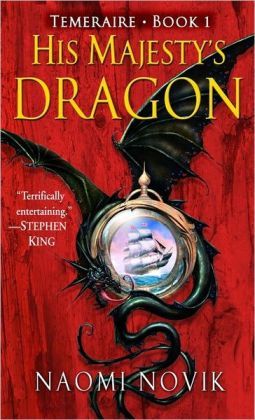 A charming read from first page to last, His Majesty's Dragon is a fantasy novel in which England is at war with Napoleon's France and both sides have a formidable arsenal of dragons and an aviator corps to pilot them. A Navy captain captures a French vessel and finds out why they fought so hard after all seemed lost -- there was an unhatched dragon egg on board. But this rare prize is about to hatch at sea, where no aviator is around to bind it to service.
A charming read from first page to last, His Majesty's Dragon is a fantasy novel in which England is at war with Napoleon's France and both sides have a formidable arsenal of dragons and an aviator corps to pilot them. A Navy captain captures a French vessel and finds out why they fought so hard after all seemed lost -- there was an unhatched dragon egg on board. But this rare prize is about to hatch at sea, where no aviator is around to bind it to service.
In her Hugo-nominated debut novel, Naomi Novik puts an irresistible spin on dragons. They're literate, varied in skill and intellect and opinionated -- with Temeraire the most intriguing of them all. Though the book fits comfortably in fantasy, the protagonist Will Laurence is so particular about his belongings, manner and social mores he'd be right at home in a regency romance novel. This lends the book some of its best comedy. I'm running out of superlatives. There are eight more books in the series and I'm eager to read them all.
The Walking Dead Ends Unexpectedly
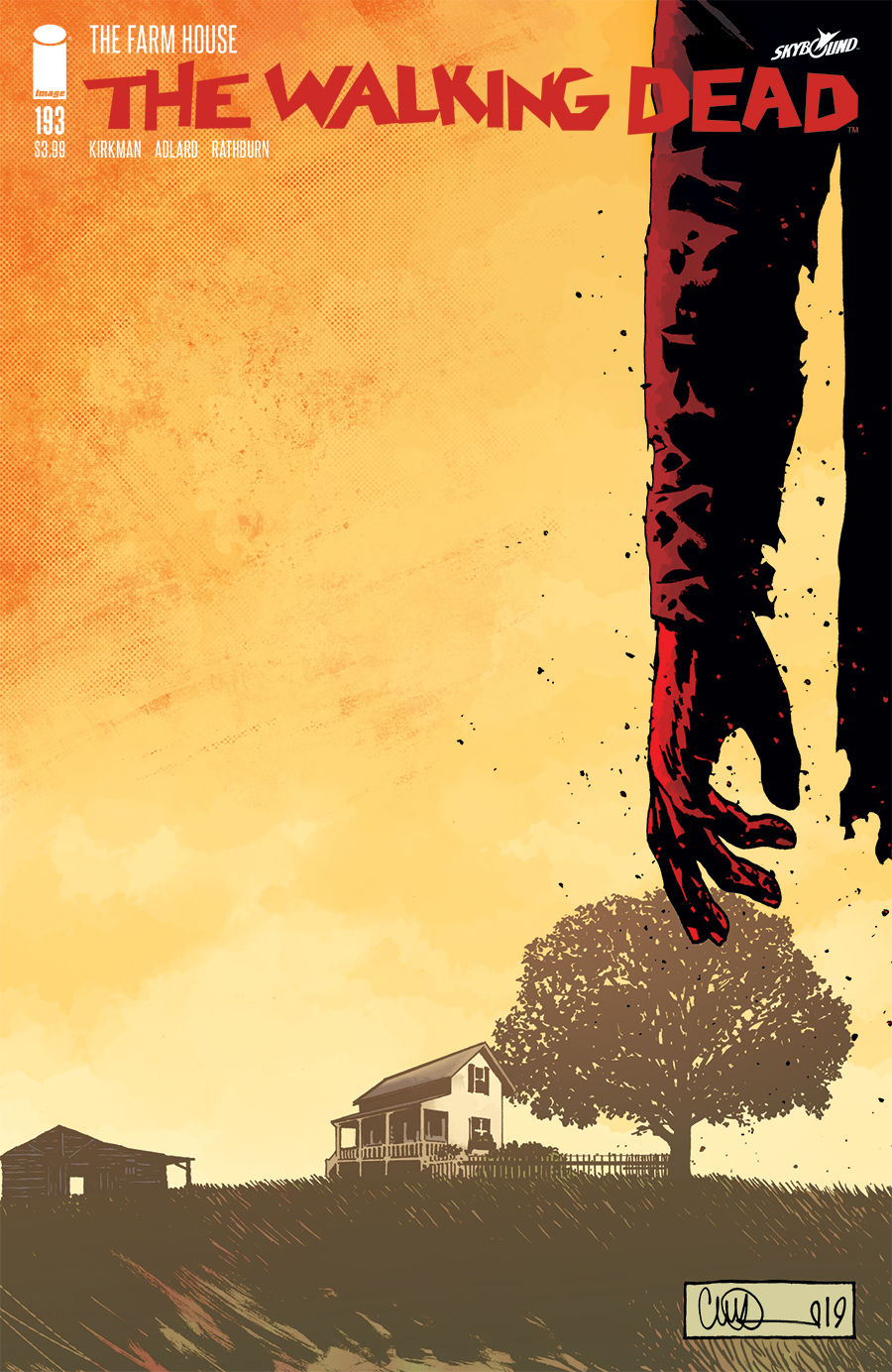 The Walking Dead issue 193 is worthy of a Hugo Awards nomination next year. It is a conclusion to the comic sprung entirely by surprise on the readership. To keep it under wraps, they solicited fake issues 194, 195 and 196 and made issue 193 a giant-sized finale at the regular price. Orders for those fake issues have been refunded.
The Walking Dead issue 193 is worthy of a Hugo Awards nomination next year. It is a conclusion to the comic sprung entirely by surprise on the readership. To keep it under wraps, they solicited fake issues 194, 195 and 196 and made issue 193 a giant-sized finale at the regular price. Orders for those fake issues have been refunded.
Without spoiling the content, it's a time jump that is intriguingly ambiguous about the proper lesson to take from the zombie apocalypse. I often find Robert Kirkman's writing to be heavy on obvious dialogue that could go unsaid, but the story he's told in 193 is effective. There's one particular moment between two sons that will stick with me for a while. The art is exceptional, including some multi-page spreads that are as good as anything Charlie Adlard has ever done.
Kirkman ends the comic with a multi-page essay explaining the decision to end the story and the reason he did it so abruptly without the marketing hype and massive orders that would've come from announcing it many issues in advance. (The short answer is that he hates knowing when the end of a book, movie or TV series is coming because it lessens the impact.)
In the essay he concludes by thanking a lot of people. Surprisingly, one of them is original series artist Tony Moore, who was engaged in a seven-year legal battle with Kirkman involving the rights to the comic before they reached a confidential settlement in 2012.
Review: 'Eternity Road' by Jack McDevitt
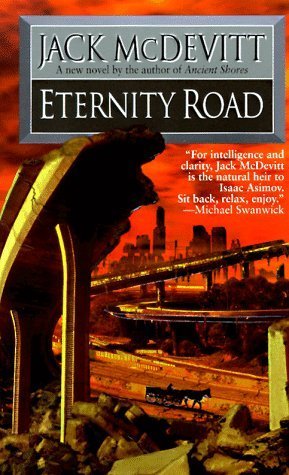 This post-apocalyptic novel occurs long after the fall of civilization. Humans in an agrarian society along the Mississippi River yearn to learn more about the Roadmakers, so named because of the enormous network of roads left behind. Little else survives other than six books and a lot of garbage impervious to decay. Ten years after a quest to learn more ends in tragedy, the lone survivor's death leads to a discovery in his belongings. This sparks a dangerous new quest by a small band to cross the continent and find a legendary place where civilization endured.
This post-apocalyptic novel occurs long after the fall of civilization. Humans in an agrarian society along the Mississippi River yearn to learn more about the Roadmakers, so named because of the enormous network of roads left behind. Little else survives other than six books and a lot of garbage impervious to decay. Ten years after a quest to learn more ends in tragedy, the lone survivor's death leads to a discovery in his belongings. This sparks a dangerous new quest by a small band to cross the continent and find a legendary place where civilization endured.
Jack McDevitt's novel is a love letter to the importance of books. The best moments see the protagonists puzzle over ancient objects and places they encounter. The pacing is pokey until it races to a last-third payoff resolving the core mystery in a satisfying way. Seeing humans grapple with ways to invent better engines for river travel reminded me of Philip José Farmer's Riverworld, another work that venerates human ingenuity.
Review: 'Every Crooked Path' by Steven James
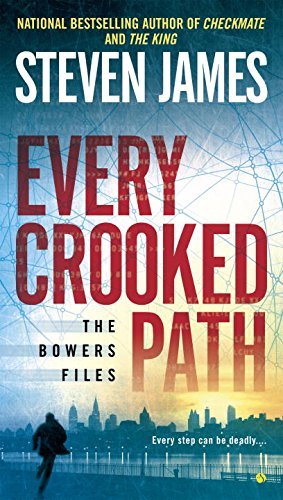 When my favorite stop on I-95 in North Carolina ceased selling paperbacks because the distributor folded, they offered to sell me the spinrack and the 24 well-thumbed books left on it. I ended up with some thrillers I otherwise would have missed, like this one. I love the rack but wish I'd missed this book.
When my favorite stop on I-95 in North Carolina ceased selling paperbacks because the distributor folded, they offered to sell me the spinrack and the 24 well-thumbed books left on it. I ended up with some thrillers I otherwise would have missed, like this one. I love the rack but wish I'd missed this book.
Every Crooked Path is a convoluted novel with slapdash pacing, thin characterization and characters who speak in the same voice -- a trait most excruciating when the protagonist attempts to bond across the generation gap with his girlfriend's sullen 15-year-old daughter. FBI agent Patrick Bowers is hunting a dark web child sex trafficking group, a disturbing subject the author tries to soften by being short on harrowing details. That works, but the logic of the case doesn't. One thing that did work was a character suffering a breakdown from a job watching videos of child exploitation for a safety group. That has become an all-too-real problem for social media moderators at Facebook.

